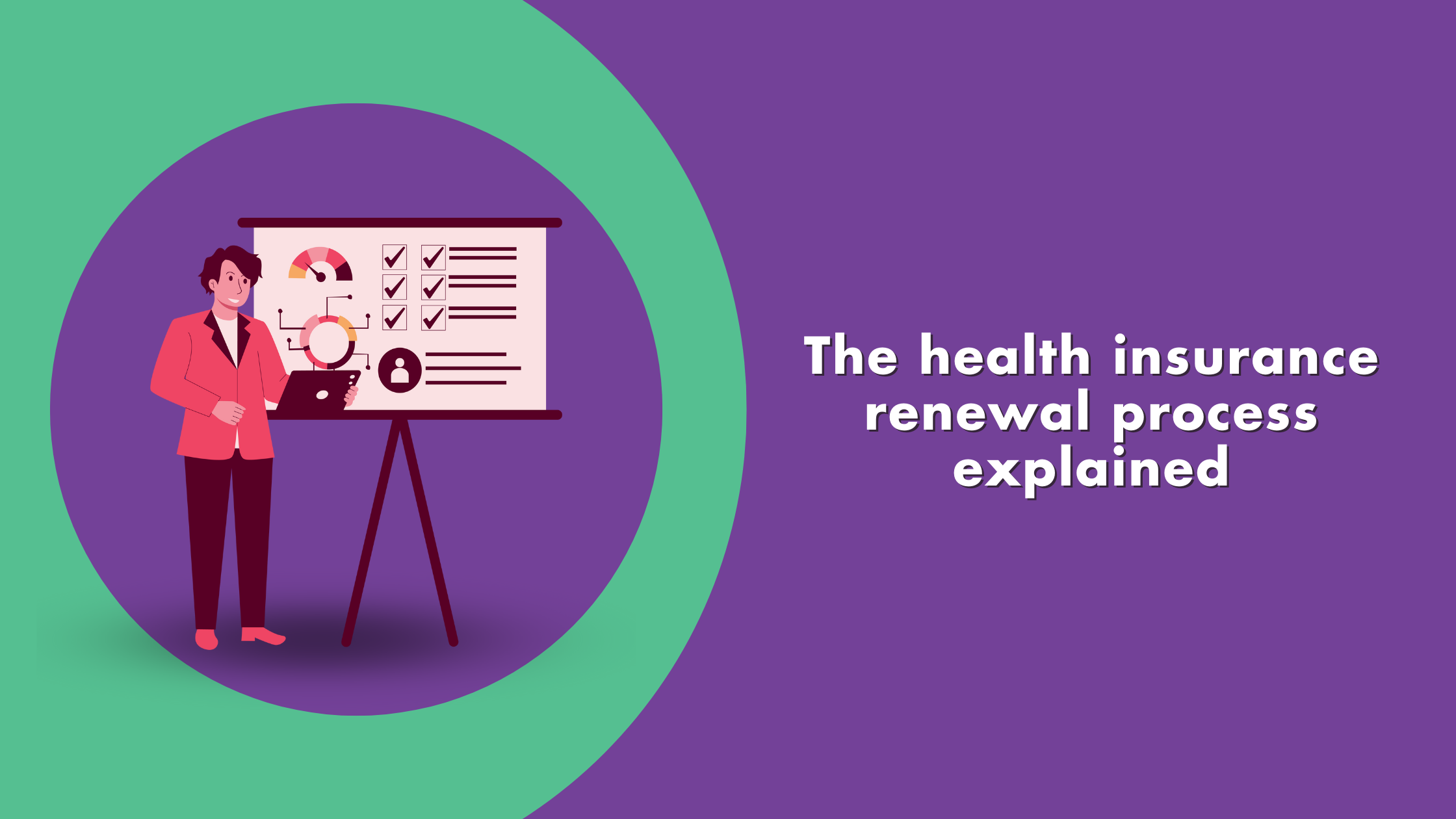Google might be able to provide five-a-side football pitches and swimming pools for employees, but how about smaller businesses?
As an employee benefits broker, we often work with start-ups and SMEs who are operating within tight financial constraints. While they might be passionate about providing more for their employees, their budget will only stretch so far.
It’s worth breaking things down into three core areas of wellbeing:
- Mental
- Physical
- Financial
You can think of it as a three-legged stool, if one leg is missing, the whole thing collapses. On the other hand, if you can cover these three core areas, you’ll go a long way to helping your employees feel happy, healthy and ready to give their best.
This can sound like a lot of ground to cover for those businesses with limited resources. But actually, it’s more achievable than it sounds and it needn’t break the bank.
Here are seven low cost – or zero cost – ideas for covering all bases on a budget.
Are you a start-up or SME looking to set-up or review an employee benefits policy? Contact our friendly team of award-winning brokers on hello@hoorayinsurance.co.uk or 01273 222805 for straightforward and honest advice.
- 1. Group Health Cash Plans
- 2. Group Life Insurance
- 3. Flexi-working arrangements
- 4. Digital benefits platforms and apps
- 5. Employee Assistance Programmes (EAP)
- 6. Food, drink and travel perks
- 7. Provide career progression and upskilling opportunities
- Need help setting up an employee benefits scheme?
1. Group Health Cash Plans
Health, wellbeing & financial support
Group Health Cash Plans are a great alternative for businesses struggling to afford a Company Health Insurance policy. A Cash Plan provides coverage for everyday health issues rather than more serious conditions. Services usually include things like:
- Physiotherapy, osteopathy and chiropractic treatments
- Dentistry
- Optical care
- Virtual GP access
- Mental health support and tools
- Acupuncture
There is a good deal of flexibility in what’s offered in a Health Cash Plan, so it can be adjusted to the needs of a business and its employees.
One of its key benefits is that everyone in the workforce can benefit from its services – regardless of their medical background or health profile. Plus, it saves them from paying privately for common expenses like dentistry and eyecare.
If companies are looking to cover more serious conditions then they’re better off buying a Company Health Insurance policy. Today’s private healthcare market is full of innovation and there are now more solutions for small businesses. Additional services like Employee Assistance Programmes and digital apps have expanded the level of health support on offer, making it easier for employees to utilise and for businesses to manage.
Terms and conditions around these policies can get rather convoluted and so it’s worth speaking to an impartial broker like Hooray, who can offer FREE personalised advice.
2. Group Life Insurance
Financial protection
Life Insurance policies provide financial protection to an employee’s loved ones. It’s really about preparing for the worst-case scenario and giving peace of mind to both employees and their family or other designated recipients.
Employee Life Insurance is also affordable for most companies as it has lower premiums than other protection policies. Many policies even include bereavement counselling, and, in rare cases, an Employee Assistance Programme.
The amount paid to an employee’s family is calculated as a multiple of the employee’s salary or as a specified value. The exact amount will be your decision.
Need help finding the right Group Life policy? Contact our friendly team of experts on hello@hoorayinsurance.co.uk or give us a call on 01273 222805. We’ll be happy to answer your questions on this or any other health and protection policy.
3. Flexi-working arrangements
Financial wellbeing & lifestyle
Remote working has become the norm in many businesses today. Clearly, it’s not an option for all businesses, but for those jobs where the only tools required are a laptop and an internet connection, employees are increasingly demanding and expecting it.
However, face-to-face contact still matters when it comes to maintaining a healthy company culture where employee’s feel part of a team. The key then, is getting the balance right. For working parents, remote working or even flexi-time arrangements can be a huge help when juggling work and home life.
There is no one right way, as different companies and industries have a different set of demands. But those companies who adjust to employee expectations in a given sector are more likely to keep hold of their best people and attract the best candidates.
4. Digital benefits platforms and apps
Mental, physical & financial support
There are a huge range of platforms and apps which provide all manner of health and wellbeing support. Some also offer employee rewards and discount schemes. Health Insurance policies and Cash Plan arrangements often include some form of digital platform, but they can also be purchased separately.
Platforms vary from simple mental health and wellbeing apps, to fully fledged HR tools. The latter can include payroll integration, employee recognition schemes, retail discounts, health insurance scheme management and much more.
The good things is there’s a solution suited to every business size.
5. Employee Assistance Programmes (EAP)
Mental & emotional wellbeing support
EAPs are usually housed on a digital platform and included with Group Health Insurance schemes and Health Cash Plan policies. They are designed to tackle a wide range of emotional stresses and strains, whether it’s related to trauma, financial worries, work stresses or any number of issues.
Features of an EAP include:
- Access to a professional counsellor or psychotherapist
- Practical exercises which help build emotional resilience
- 24/7 helpline
- Wellbeing app
- Legal and financial support
- Usage stats and insights to help spot wellbeing trends
6. Food, drink and travel perks
Financial wellbeing support
A simple way that businesses can help employees financially is to provide discount on food, drink and travel. This can be offered via an online platform (see above) or via a few simple in-house measures. For example, free or discounted lunches as standard (up to a maximum value) and travel and parking discounts – can all help employees lower their daily expenses.
7. Provide career progression and upskilling opportunities
Morale and productivity
Most employees will want to progress in their careers. So, if you can provide a roadmap for achieving that, you’re sure to help motivate them day-to-day.
Some smaller businesses might lack opportunities for progression, but even in those cases, it’s possible to help them develop new skills, whether closely related to their work or broader soft skills (such as public speaking, written communication, or leadership skills).
Consider offering:
- Clear career pathways for employees
- Training programmes (either delivered by managers or external providers)
- Educational courses (can be formal industry recognised courses or short courses across a range of subjects, many of which can be found at a low cost and are available via websites like Udemy)
According to a poll by Gallup, 87% of millennials said that professional growth and career development opportunities were very important to them. In order to attract and retain talented people, it’s a crucial area to address. If you’re not already providing some kind of career development opportunity within the business, you’re likely to have employees suffering from itchy feet syndrome!
Need help setting up an employee benefits scheme?
Many small business owners find employee benefits a challenging issue to address. What’s the best digital platform to host my benefits on? What’s the best health insurance scheme for my business? How do I prioritise when there are so many options and providers out there?
As an employee benefits broker, we specialise in helping start-ups and SMEs navigate the process. We work with all the major insurers to ensure our clients get the best value policies (we don’t act as a sales funnel for just one or two providers!) and we advise on how to implement policies into your business.
To get free advice from our friendly award-winning team, contact hello@hoorayinsurance.co.uk or give us a call on 01273 222805.
Author

Author: Mel Dixon
Mel is a journalist, editor and digital content writer who has written extensively on issues affecting the small business community.
He trained as a journalist at Southampton Solent University which propelled him into a 12 year career as a freelance writer and communications professional.At the start of his freelance career, Mel launched the blog for accountancy firm Crunch and wrote a regular tax advice column for Photo Professional Magazine. He was a finalist in the Freelancer of the Year Awards 2010.Today, he writes about health insurance, employee benefits and employee wellbeing more generally.Mel keeps an eye on all the industry news and is a regular reader of Health & Protection, Cover Magazine, Employee Benefits and The Human Times, among other publications.









![_HPA24 Advice Firm of the Year [YELLOW] _HPA24 Advice Firm of the Year [YELLOW]](https://hoorayinsurance.co.uk/wp-content/uploads/elementor/thumbs/HPA24-Advice-Firm-of-the-Year-YELLOW-qwfw5zs3ef19fjq6cnwf697rj9gwqbf8o6443qptg0.png)
![_HPA24 Best Small Health Insurance Advice Firm [YELLOW] _HPA24 Best Small Health Insurance Advice Firm [YELLOW]](https://hoorayinsurance.co.uk/wp-content/uploads/elementor/thumbs/HPA24-Best-Small-Health-Insurance-Advice-Firm-YELLOW-qwfw5yu97kzz3xrji5hslrgaxvljimbic1gmmgr7m8.png)
![_HPA24 Best Sales & Retention Advice Team [YELLOW] _HPA24 Best Sales & Retention Advice Team [YELLOW]](https://hoorayinsurance.co.uk/wp-content/uploads/elementor/thumbs/HPA24-Best-Sales-Retention-Advice-Team-YELLOW-qwfw5yu97kzz3xrji5hslrgaxvljimbic1gmmgr7m8.png)
![_HPA24 Best Small Protection Advice Firm [YELLOW] _HPA24 Best Small Protection Advice Firm [YELLOW]](https://hoorayinsurance.co.uk/wp-content/uploads/elementor/thumbs/HPA24-Best-Small-Protection-Advice-Firm-YELLOW-qwfw5zs3ef19fjq6cnwf697rj9gwqbf8o6443qptg0.png)